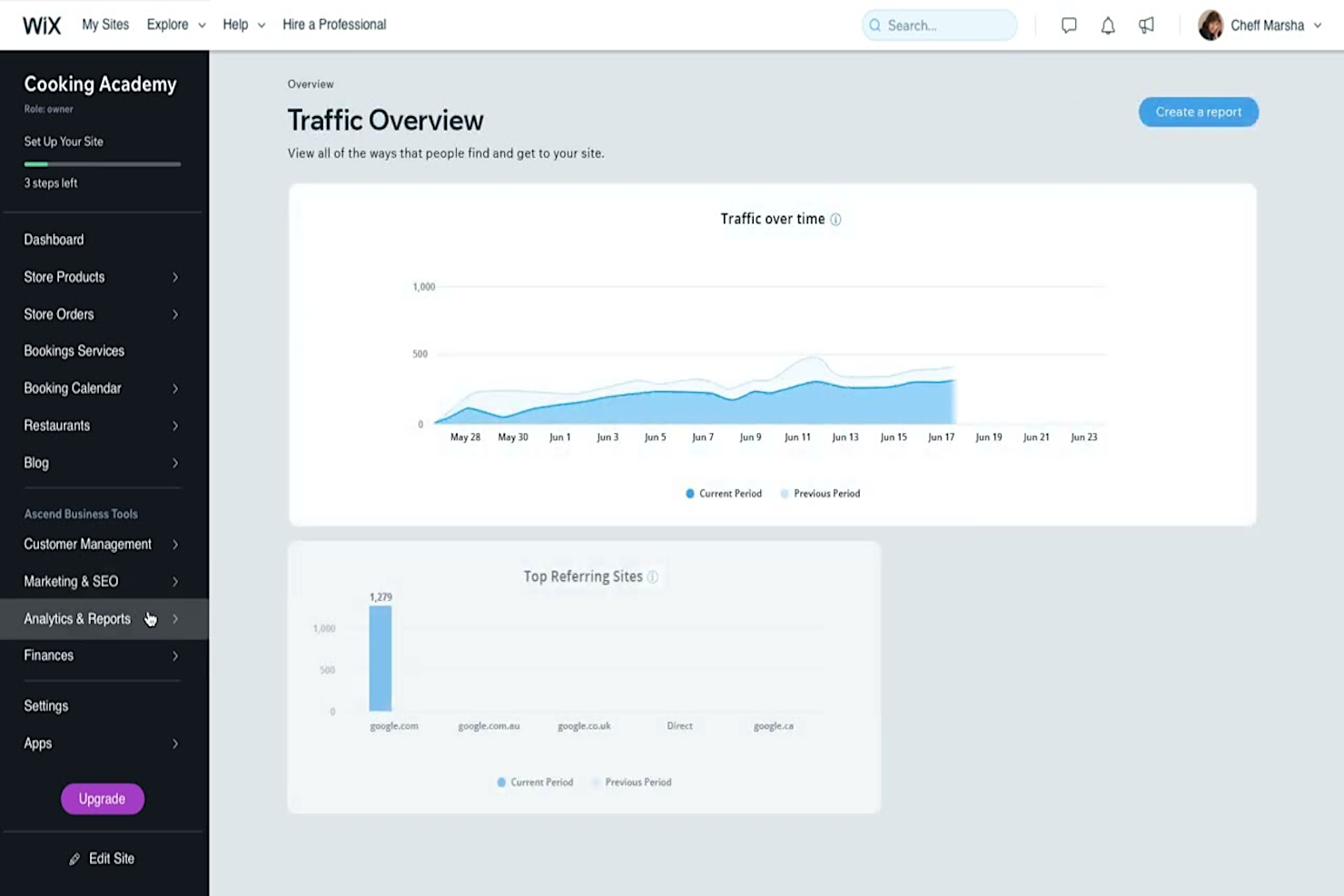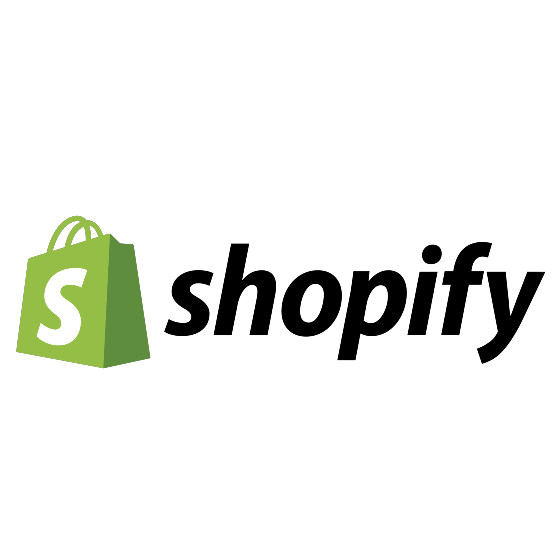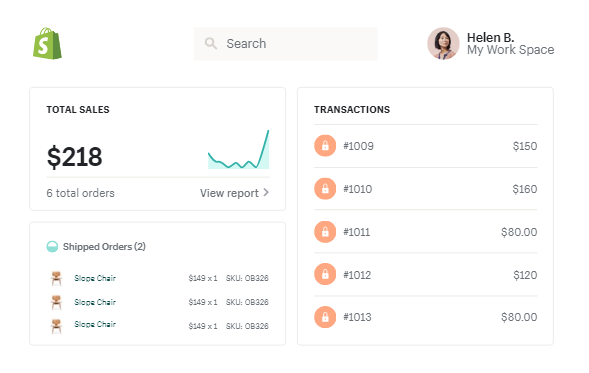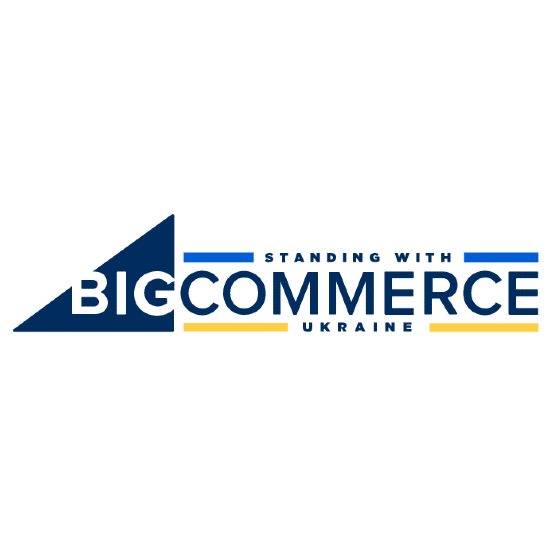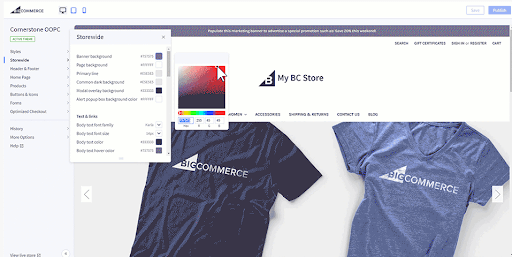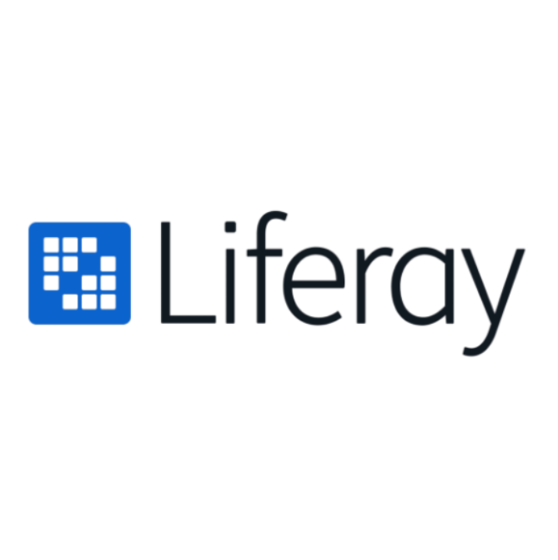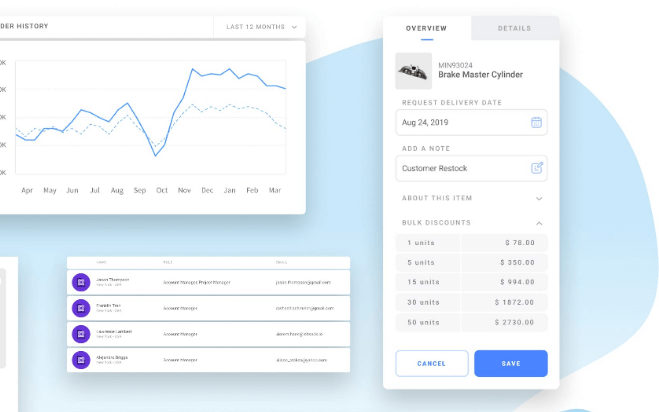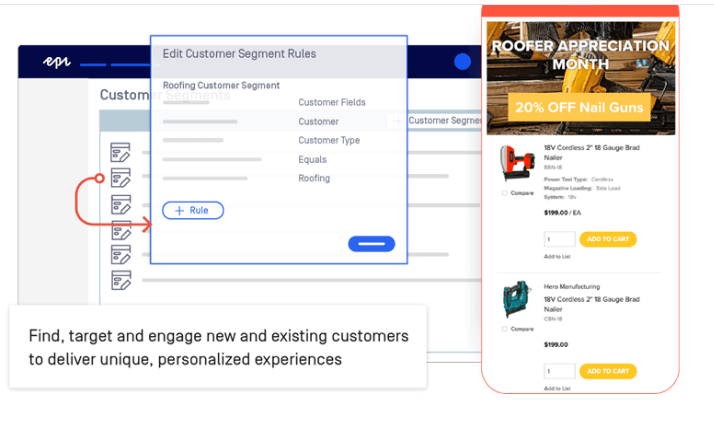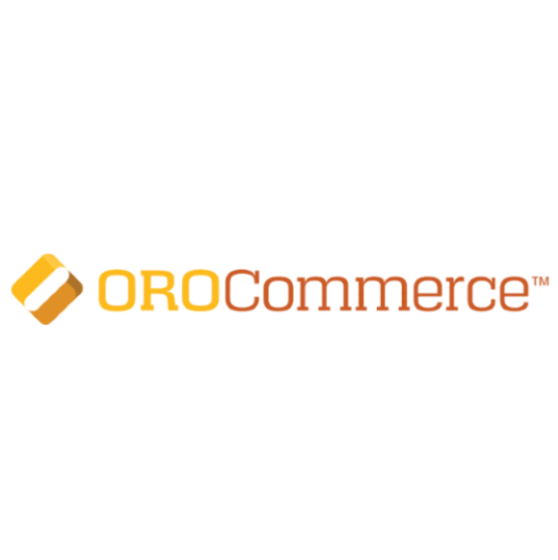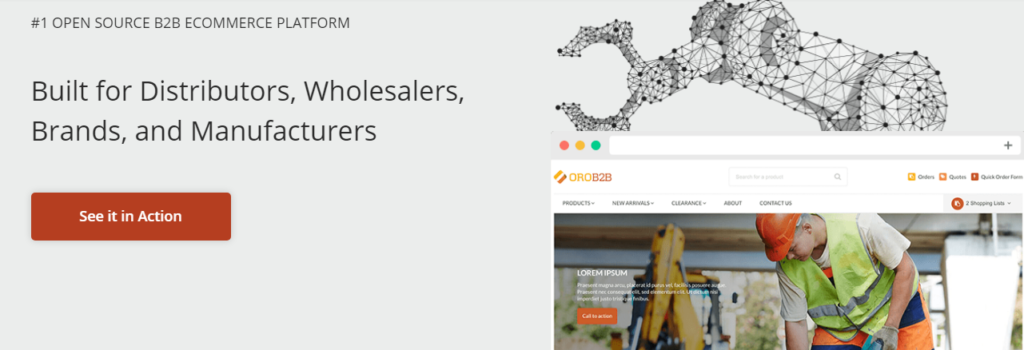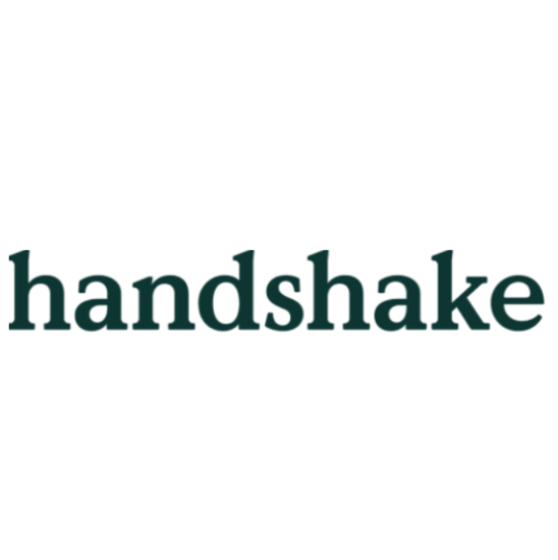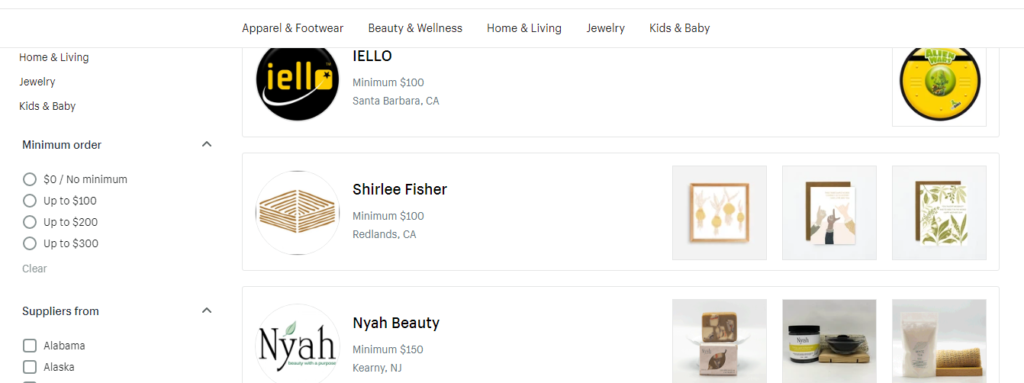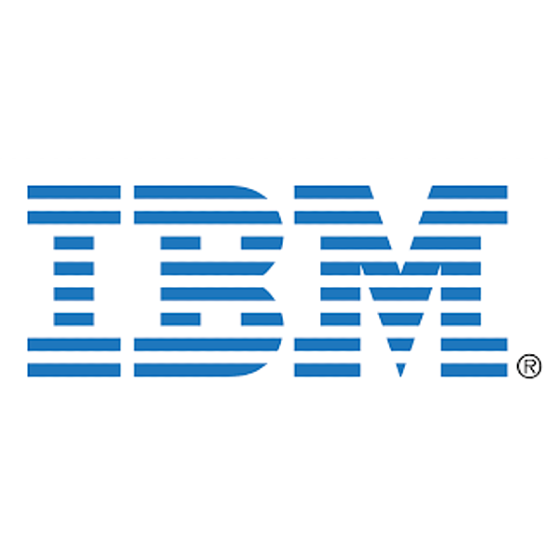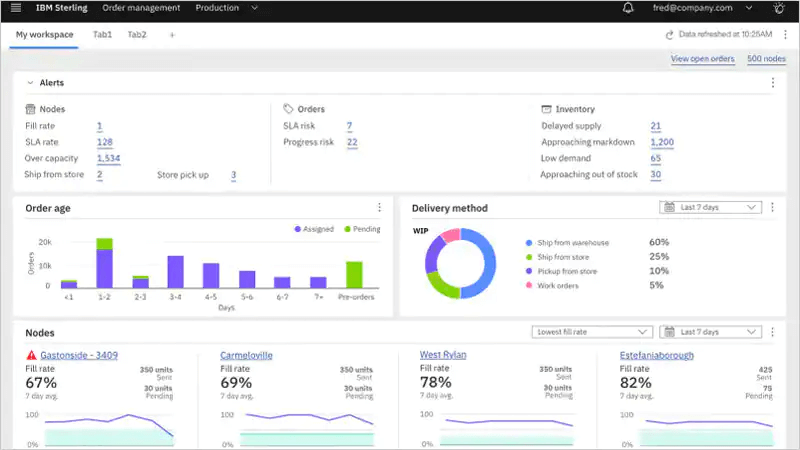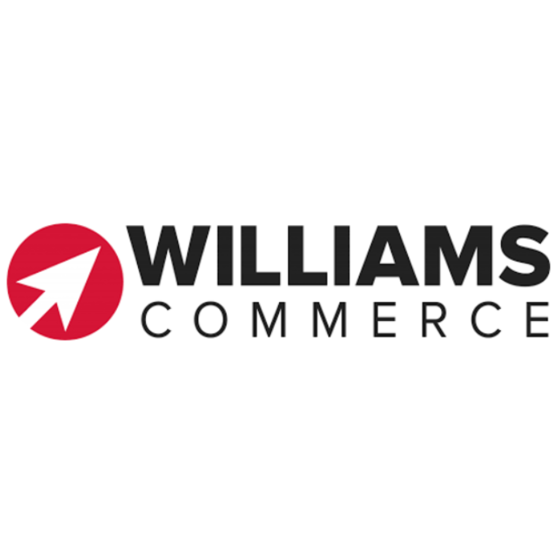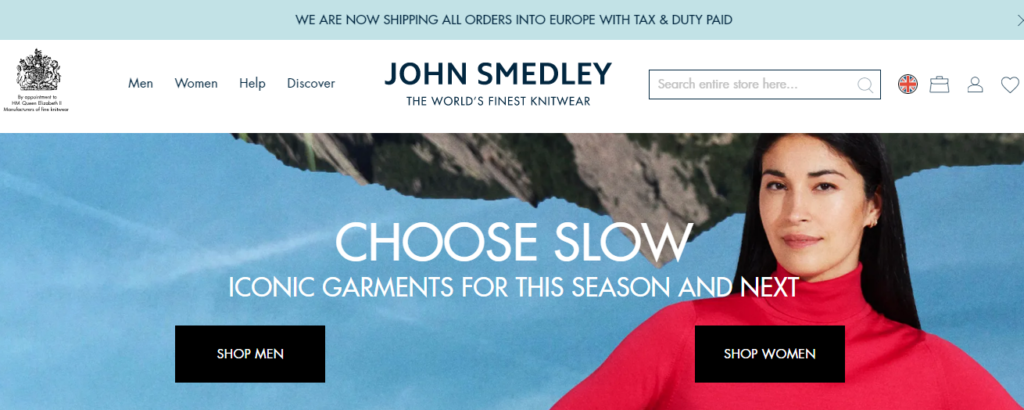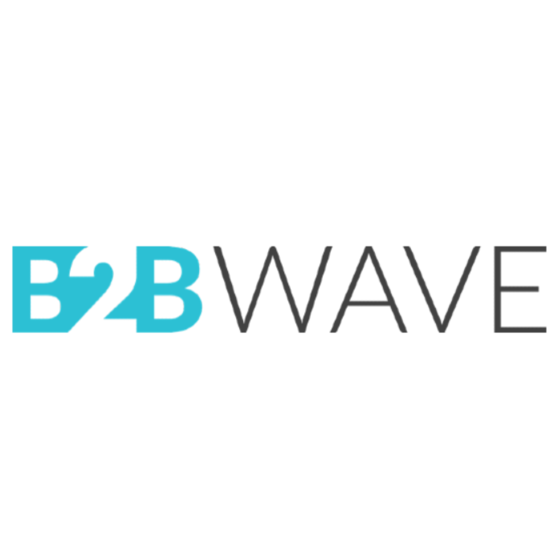10 Best B2B Ecommerce Platforms List
Here's my pick of the 10 best software from the 40 tools reviewed.
Our one-on-one guidance will help you find the perfect fit.
There are so many different B2B ecommerce platforms that making a shortlist of the best can be tricky. You want to meet the specific needs of business-to-business interactions, such as handling large orders, offering custom pricing, and managing complex product configurations—and now need the right tool for your store and team. I've got you covered! In this post, I share from my personal experience managing online stores of all sizes and using many different ecommerce platforms and share my picks of the best B2B ecommerce platforms overall.
What is a B2B Ecommerce Platform?
B2B ecommerce platforms are specialized online systems designed for the specific needs of businesses engaging in transactions with other businesses. Unlike consumer-focused platforms, they cater to the unique aspects of B2B sales such as bulk ordering, customized pricing, and extended payment terms.
The purpose is to streamline the sales process, offering features like detailed product catalogs, order management, customer-specific pricing, and account management tools. They enable businesses to efficiently conduct transactions, manage customer relationships, and track sales performance, all within a digital environment tailored to the complexities of B2B commerce.
Overviews Of The 10 Best B2B Ecommerce Platforms
Here’s a brief description of each B2B ecommerce platform on my list.
Wix eCommerce is a powerful B2B eCommerce platform that helps businesses offer customers a personalized experience, including product selection and shopping cart services. Using their software, you can manage your inventory in real-time, reducing the need for manual intervention. This saves time and money for both the customer and supplier during the procurement process.
Wix eCommerce creates customer profiles that support enhanced marketing efforts to target customer segments more effectively. You can access built-in analytics to observe customer buying behaviors in detail, or set up automated shipping processes using its flexible fulfillment providers, allowing orders to get shipped faster and at a lower cost.
Wix eCommerce has an intuitive website builder that can help you create beautiful websites quickly. Using their drag-and-drop editor, you can customize your store with powerful design tools and add images and videos. Their website builder is compatible with most major browsers so customers can access your store from any device.
You will also gain access to powerful marketing tools like email campaigns and social media integrations. Wix eCommerce also includes a built-in SEO optimization feature to ensure that your products appear on SERPs when people search for related terms or topics.
Their product management tools make it easy to keep track of all inventory and product information in one place. It also supports bulk importing and exporting products, so you can track orders from multiple suppliers or distributors easily. You can easily add products to your store, set up discounts and promotions, and track sales performance over time.
With Wix eCommerce's secure checkout process, customers can purchase without worrying about compromised financial information. All customer data is kept safe through encryption to ensure maximum security during each transaction. Merchants can accept payments in multiple currencies and languages via PayPal and Stripe.
Integrations include 123FormBuilder,v AdScale, AfterShip, Cart2Cart, Dropbox, EasyShip, Eventbrite, Google Drive, Importify, JivoChat, Klaviyo, Mailchimp, Meta for Business, Privy, and SoundCloud.
Pricing for Wix eCommerce starts at $20/month. A 14-day free trial is also available.
If online shops were Marvel villains, then Shopify would be Thanos — it is inevitable.Shopify is an all-in-one ecommerce platform that comes with all the tools you need to launch and scale an ecommerce store. From storefront to SEO to inventory management and shopping cart capabilities, Shopify covers everything you need in one place.
Shopify’s multi-vendor ecommerce marketplace comes with all the plugins you need to growth-hack your ecommerce business.Used by more than 90k retailers from over 100 countries, Shopify is known for its stability and always-on availability. It comes with an intuitive dashboard that makes executing complex tasks fairly simple.
It works out of the box with apps like Oberlo, Amazon, Facebook Messenger, and 3000+ other apps ranging from reporting to customer support.The product has a great support community behind it along with a help center and direct chat support.
Shopify costs from $29/month when paying monthly, with 2.9% + $0.30/transaction. Shopify offers a 3-day free trial from their website. If you shop around, you can find affiliates who offer 14-day free trials.
One of the big guns in the B2B ecommerce space, BigCommerce plans are structured around how much you can sell on their platform.BigCommerce comes with end-to-end features that cover every aspect needed to run a modern ecommerce business. There are tools for customer segmentation, payment processing, abandoned cart recovery, and more.
The dashboard is simple and by far the easiest to use among the platforms on this list. The site editor lets you easily customize the ecommerce site to your brand’s design language without any techie code stuff.
BigCommerce is a great choice for companies who need to integrate out of the box with popular apps like Webgility, ActiveCampaign, Avalara Tax, Stripe, and 100s of other essential integrations.
Stuck on something? The customer support team is available 24/7 via email or phone. Also, there is a highly supportive community built around the product.
BigCommerce plans start at $29.95 per month with the option for a 1-month free trial.
Liferay helps you create personalized web experiences for your ecommerce business.The product has features like customized workflows, inline editing, dynamic publishing, localization, and adaptive media.
Though it has more personalization features than most other tools, the setup is a bit jarring for someone brand new to such platforms.
Liferay comes with a bunch of useful extensions like StreamForce (Liferay Salesforce connector), SAP business objects connector, and more.
Pricing is based on customized quotes with the possibility of 24/7 phone support for the Platinum plan.
Episerver fetches multiple personalized site experiences from a single site, based on segment, location, or device.It leverages AI and machine learning to create this state-of-the-art personalized ecommerce experience. The product uses a powerful integration architecture and rules engine to provide dynamic cart checkout experiences, order management, list management, and more.The customer-specific pricing also serves your complex needs as an ecommerce business owner. The product offers a variety of premium and technical support services, along with a ton of educational material.The product has a knowledge base with direct support available only via email.The pricing is based on requirements, page views, and SKUs you have listed.
OroCommerce is a powerful open-source B2B ecommerce platform with features like requests for quotes, inventory management, CRM, multiple shopping lists, dynamic pricing engine, and more.The OroCommerce marketplace includes integrations with Mailchimp, PayPal, Zendesk, and more.
OroCommerce offers a team of in-house experts that support enterprise customers with maintenance and upgrades.
The community edition comes as a free download with custom pricing for the enterprise edition.
Handshake is one of the most unique ecommerce platforms out there. It lets you handpick unique products from a wholesale marketplace to sell in your store. The team behind Handshake personally curates unique, buzz-worthy products that are trending at the moment and lets you choose what you want to sell from this unique marketplace.
The dashboard is straightforward and lets you quickly select from an array of products.Handshake integrates with apps like Xero, Invoice Ninja, DropBox, Google Sheets, and more, using Zapier.Currently, Handshake supports the US market only.
The platform is powered by Shopify.
IBM order management is a tool that aims to help existing businesses streamline order management. The tool helps you connect all your inventory locations and sales channels and then effectively fulfill every order made anywhere on your platform. In-store sales reps can order for customers from online inventory and then have the product sent to their homes.
This ensures you maximize opportunities people have to buy, thus increasing revenue. The tool stands out due to its AI capabilities. The tool intelligently tracks sales and demand to help you make more accurate decisions on sourcing new stock.
And it ensures you always fulfill orders in a way that is both fast and cost-effective.
IBM does not promote pricing, but you can contact the company via the website.
Best ecommerce software development agency for developing Magento ecommerce platforms
Williams Commerce is a Magento Gold partner with over 250+ Magento builds under its belt. It has over 100+ top ecommerce specialists in its team, 350+ website projects, and a multi-national team spanning over 6 offices worldwide.
Williams Commerce offers services in ecommerce platform building, digital marketing consulting, systems integration, and more.
There is a development team that’s available 24/7 to fix any site issues you have.
B2B Wave is a robust SaaS ecommerce platform for wholesale distributors and manufacturers to streamline their ecommerce store.B2B Wave lets you have unlimited customers and orders, along with a maximum cap of 20k products for its basic plan. The platform promises fast execution with a rollout within 24 hours.
Though this makes it good for testing product MVPs, but for a full-fledged ecommerce business, there can be a need for more features.As for inventory management, you can set the inventory status for each product, and edit availability by date, as well as enable backorders.
B2B Wave integrates with apps like QuickBooks online, PayPal, Stripe, Mailchimp, and other mainstream apps for business processing and sales.
The customer support can be reached via email or live chat 24/7, or by phone Monday to Friday.
The basic plan starts at $160 per month.
The Best B2B Ecommerce Platforms Summary
| Tools | Price | |
|---|---|---|
| Wix eCommerce | From $16/month. | Website |
| Shopify | From $29/month (billed annually) | Website |
| BigCommerce | From $29/month (billed annually) | Website |
| LifeRay | No price details | Website |
| Episerver | No price details | Website |
| OroCommerce | Pricing upon request | Website |
| Handshake | No price details | Website |
| IBM Order Management | Pricing upon request | Website |
| Williams Commerce | No price details | Website |
| B2B Wave | From $160/month | Website |

Compare Software Specs Side by Side
Use our comparison chart to review and evaluate software specs side-by-side.
Compare SoftwareOther B2B Ecommerce Platform Options
Here are a few more that didn’t make the top list.
- MeGaDev
Best for ecommerce customization for midsize businesses
- Wix
Best eCommerce platform for design aesthetics
- Adriel
Best ecommerce data aggregation for ad, marketing, and social efforts
- ShipEngine
Best for B2B ecommerce platform for global multi-carrier shipping
- Lightspeed eCom
Best B2B ecommerce platform for easy inventory management
- Yotpo
Best ecommerce platform for built-in marketing features like SMS marketing and referral programs
- OrderCircle
Best customized ecommerce solution for wholesale ecommerce
- Bluepark
Best ecommerce solution for UK companies
- ewiz commerce
Best ecommerce software for small businesses to leverage AI-based personalization
- Purchase Commerce
Best headless commerce platform for small businesses
- Sana Commerce
Best ecommerce platform for SAP and Microsoft dynamics
- IBM Watson Commerce
Best AI-driven tool to manage and optimize decisions at scale for your cloud-based ecommerce platform
- YoRent
Best Rental Marketplace Software to Build Online Rental Website
- Znode
Best enterprise ecommerce platform for API integrations
- inRiver PIM
Best ecommerce platform for omnichannel ecommerce business
- SelfServe by OmPrompt
Best B2B ecommerce platform to optimize customer experience and usability
- Salesforce B2B Commerce
Best b2b ecommerce platform to get real-time customer data.
- Drupal Commerce
Best open-source CMS tool to build an online store
- B2B.store
Best B2B order processing platform for wholesalers
- SellerChamp
Best ecommerce software for faster bulk listings and list management
- Pepperi
Best B2B ecommerce platform for wholesale distributors
- Perenso
Best ecommerce sales execution platform for distributors and enterprise wholesalers selling to retail business owners
- K-eCommerce
Best ERP-integrated ecommerce solution for wholesalers
- Equipt by Gen Alpha
Best B2B ecommerce platform for bill of material structures
- QuickBooks Commerce
Best order and supply based management platform for small to medium-sized businesse
- Now Commerce
Best B2B online ordering platform for wholesalers, distributors, and manufacturers using QuickBooks
- Spryker
Best platform as a service solution to enable modern integrations
- E-point
Best B2B ecommerce software building agency for building customized ecommerce features.
- Envoy B2B
Best b2b ecommerce platform for support-related features
- Aphix Digital Ordering Platform
Best platform for ERP-integrated ecommerce
Want to discover more ecommerce tools? Here’s a full list of top ecommerce platforms. It’s also worth considering whether you’ll need an ecommerce CRM — find a list of options here!
B2B Ecommerce Platform Comparison Criteria
B2B ecommerce has requirements that B2C doesn't. So, what do I look for when I select the best B2B ecommerce platforms? Here’s a summary of my evaluation criteria:
- User Interface (UI): Is it clean and attractive? Is it minimalist with not too many complicated options?
- Usability: Is it easy to learn and master? Does the company offer good tech support, user support, tutorials, and training? Is the back-end user experience jargon-free? Are the applications easy to implement without too many steps getting in the way? Does the software offer a mobile app for on-the-go use?
- Integrations: Is it easy to connect with other tools like warehouse management systems or ecommerce marketing tools? Any pre-built integrations? How smoothly does it work with different plugins, add-ons, and extensions?
- Value for $: How appropriate is the price for the features, capabilities, and use case? Is pricing clear, transparent, and flexible?
B2B Ecommerce Platform: Key Features
What ecommerce features make the best B2B ecommerce software? I specifically scouted the web for these important features and functionalities:
Customization And Personalization
Does the platform let you customize the look and feel of the website according to your brand’s tone and design language?
Also, does the platform fetch personalized content based on the visitor’s demographic characteristics?
These kinds of features can lead to higher conversions for the platform.
Inventory Management
Inventory management is the backbone of any modern B2B ecommerce platform. Does the platform simplify inventory management? Does it give you real-time data and analytics about stock levels and your product catalog?
Customer Support
How good is the product’s support feature? Is multichannel guidance and help available via chat, phone, or email? Is there an active community behind the product?
Dashboard
Is the dashboard clean and easy to operate? How big is the learning curve?
B2B Ecommerce Platforms FAQ
What Is B2B Ecommerce?
What Are Some Examples Of B2B Ecommerce?
Other Ecommerce Platform Reviews
Here are some similar ecommerce platform reviews I've put together in case you still haven't found what you're looking for. You can start with the overall best Best Ecommerce Platforms, which contain a little bit of everything ranked in an ultimate list.
Ecommerce Platforms by Business Type
- SaaS Ecommerce Platforms
- B2B Ecommerce Platforms
- Ecommerce Marketplace Platforms
- Subscription Ecommerce Platforms
- Ecommerce Platforms For Small Businesses
Ecommerce Platforms by Need
- Headless Ecommerce Platforms
- Easiest Ecommerce Platforms
- Omnichannel Commerce Platforms
- Free Ecommerce Platforms
- Open Source Ecommerce Platforms
- Social Commerce Platforms
- Cheap Ecommerce Platforms
- Hosted Ecommerce Platforms
- International Ecommerce Platforms
- Ecommerce Platforms In Canada
What Do You Think About These B2B Ecommerce Platforms?
These are my top picks for the B2B ecommerce platform that a tech-smart B2B ecommerce company should use to scale its sales. Building an ecommerce store is so much easier when the platform you choose caters to your designated audience.
What do you think of the list? Is there a tool that I missed? Let me know what your favorite pick is in the comments.
Know a B2B ecommerce company in your network that could use this valuable list? Please share it with them and be their new source for great information!
Need to know the latest trends in B2B ecommerce? Here are 6 Key B2b Ecommerce Trends For 2023 we're sure you will want to see!
To get the latest insights, tools, and updates on B2B eCommerce, subscribe to The Ecomm Manager newsletter.
Also Worth Checking Out:


